Buy Treating Complex Trauma Clients at the Edge -How Brain Science Can Inform Interventions – Frank Anderson Course at GBesy. We actively participate in Groupbuys and are committed to sharing knowledge with a wider audience. Rest assured, the quality of our courses matches that of the original sale page. If you prefer, you can also buy directly from the sale page at the full price (the SALEPAGE link is directly provided in the post).
Treating Complex Trauma Clients at the Edge -How Brain Science Can Inform Interventions by Frank Anderson,
Salepage link: At HERE. Archive:
- Faculty:
- Frank Anderson
- Duration:
- 2 Hours 6 Minutes
- Format:
- Audio and Video
- Copyright:
- Mar 22, 2018
Description
We often get shaken and lose confidence in our approach when a client’s trauma response edges into seemingly uncontrollable dynamics of rage, panic, or suicidal desperation.
Watch Frank Anderson, colleague of Dr. Bessel van der Kolk and Dr. Richard Schwartz, as he provides an essential road map for treating relational trauma cases. Explore the neurobiological processes of hyperarousal and parasympathetic withdrawal and the underlying symptoms.
Watch now and you will also learn various therapeutic techniques and interventions that can be integrated with psychotherapy practices to help soothe your clients’ trauma.
Handouts
| Manual – Treating Complex Trauma Clients at the Edge (1.91 MB) | 16 Pages | Available after Purchase |
Outline
Experiential Treatments – Integrating neuroscience and psychotherapy
- Necessity of utilizing physical, emotional and relationship aspects in therapeutic intervention
Problems with traditional phase oriented treatment
- Negative evaluation of symptoms – ignoring their protective function
Internal Family Systems
- Understanding symptom presentation as positive efforts pushed to extremes
- Welcoming and integrating all parts of an individual
- Identifying intent of symptomology, importance of avoiding shaming
Redefining trauma related diagnoses and integrating overactive protective mechanisms
- Disorganized attachment
- Borderline Personality Disorder, Dissociative Identity Disorder
Therapist factors – vulnerabilities
- Impact of therapist parts acting as separately as the clients we work with
- Responding effectively to personal triggers
Symptoms of post trauma
- Hyperarousal, hyperarousal, psychic wounds
- Importance of obtaining permission before addressing psychic wounds
Experiential exercise – self-awareness, response to triggers
Mind-brain relationships
- Neuroplasticity, neural integration
- Neural networks associated with trauma
- Implicit nature of trauma memories
Autonomic nervous system
- Role of cortisol
- Sympathetic hyper-arousal
- Characteristics of extreme symptom activation and mixed states
Therapeutic responses
- Choosing compassion or empathic responses
- Providing auxiliary cognition
- Strategies to avoid contributing to hyperarousal
- Top down strategies to separate or unblend
Case presentation – example of permission seeking, direct access and unblending
Polyvagal Theory
- Dorsal and ventral branches
- Activating strategies, responding to hypo-arousal, blunting
Faculty

Frank Anderson, MD Related seminars and products: 7
Frank Anderson, MD, completed his residency and was a clinical instructor in psychiatry at Harvard Medical School. He is both a psychiatrist and psychotherapist and specializes in the treatment of trauma and dissociation. He is passionate about teaching brain-based psychotherapy and integrating current neuroscience knowledge with the IFS model of therapy.
Dr. Anderson is a lead trainer at the IFS Institute with Richard Schwartz and maintains a long affiliation with, and trains for, Bessel van der Kolk’s Trauma Center. He serves as an advisor to the International Association of Trauma Professionals (IATP) and was the former chair and director of the Foundation for Self-Leadership.
Dr. Anderson has lectured extensively on the Neurobiology of PTSD and Dissociation and wrote the chapter “Who’s Taking What” Connecting Neuroscience, Psychopharmacology and Internal Family Systems for Trauma in Internal Family Systems Therapy – New Dimensions. He co-authored a chapter on “What IFS Brings to Trauma Treatment in Innovations and Elaborations in Internal Family Systems Therapy” and recently co-authored Internal Family Systems Skills Training Manual.
Dr. Anderson maintains a private practice in Concord, MA.
Speaker Disclosures:
Financial:
Frank Anderson maintains a private practice. He receives a consulting fee from the Center for Self Leadership. Dr. Anderson receives a speaking honorarium from PESI, Inc.
Non-financial: Frank Anderson is the President of the Foundation for Self Leadership.
Buy the Treating Complex Trauma Clients at the Edge -How Brain Science Can Inform Interventions – Frank Anderson course at the best price at GBesy.. After your purchase, you will get access to the downloads page. You can download all the files associated in your order at here and we will also send a download notification email via your mail.
Unlock your full potential with Treating Complex Trauma Clients at the Edge -How Brain Science Can Inform Interventions – Frank Anderson courses. our courses are designed to help you excel.
Why wait? Take the first step towards greatness by purchasing Treating Complex Trauma Clients at the Edge -How Brain Science Can Inform Interventions – Frank Anderson courses today. We offer a seamless and secure purchasing experience, ensuring your peace of mind. With our trusted payment gateways, Stripe and PayPal, you can confidently complete your transaction knowing that your financial information is protected.
Stripe, known for its robust security measures, provides a safe and reliable payment process. With its encrypted technology, your sensitive data remains confidential throughout the transaction. Rest assured that your purchase is protected.
PayPal, a globally recognized payment platform, offers an additional layer of security. With its buyer protection program, you can feel confident in your purchase. PayPal ensures that your financial details are safeguarded, allowing you to focus on your learning journey.
Is it secure? to Use of?
- Your identity is completely confidential. We do not share your information with anyone. So it is absolutely safe to buy the Treating Complex Trauma Clients at the Edge -How Brain Science Can Inform Interventions – Frank Anderson course.
- 100% Safe Checkout Privateness coverage
- Communication and encryption of sensitive knowledge
- All card numbers are encrypted using AES at relaxation-256 and transmitting card numbers runs in a separate internet hosting atmosphere, and doesn’t share or save any data.
How can this course be delivered?
- After your successful payment this “Treating Complex Trauma Clients at the Edge -How Brain Science Can Inform Interventions – Frank Anderson course”, Most of the products will come to you immediately. But for some products were posted for offer. Please wait for our response, it might take a few hours due to the time zone difference.
- If this happens, please wait. The technical department will process the link shortly after. You will receive notifications directly by e-mail. We appreciate your wait.
What Shipping Methods Are Available?
- You will receive a download link in the invoice or YOUR ACCOUNT.
- The course link always exists. use your account to login and download the Treating Complex Trauma Clients at the Edge -How Brain Science Can Inform Interventions – Frank Anderson course whenever you need.
- You only need to visit a single link, and you can get all the Treating Complex Trauma Clients at the Edge -How Brain Science Can Inform Interventions – Frank Anderson course content at once.
- You can do your learning online. You can be downloaded for better results and can study anywhere on any device. Make sure your system does not sleep during the download.
How Do I Track Order?
- We always notice the status of your order immediately after your payment. After 7 days if there is no download link, the system will automatically complete your money.
- We love to hear from you. Please don’t hesitate to email us with any comments, questions and suggestions.
![GBesy [GB] GBesy [GB]](https://www.gbesy.com/wp-content/uploads/2023/05/gbesy-Logo-full-100.png)
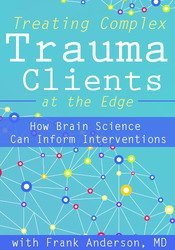
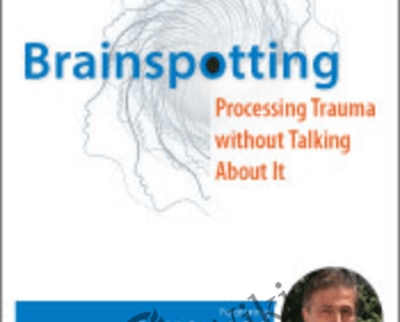

 Purchase this course you will earn
Purchase this course you will earn 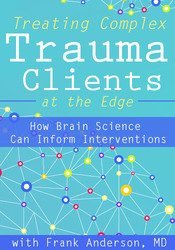


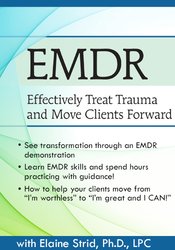

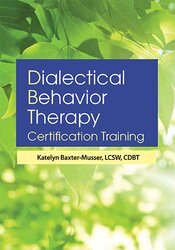

Reviews
There are no reviews yet.